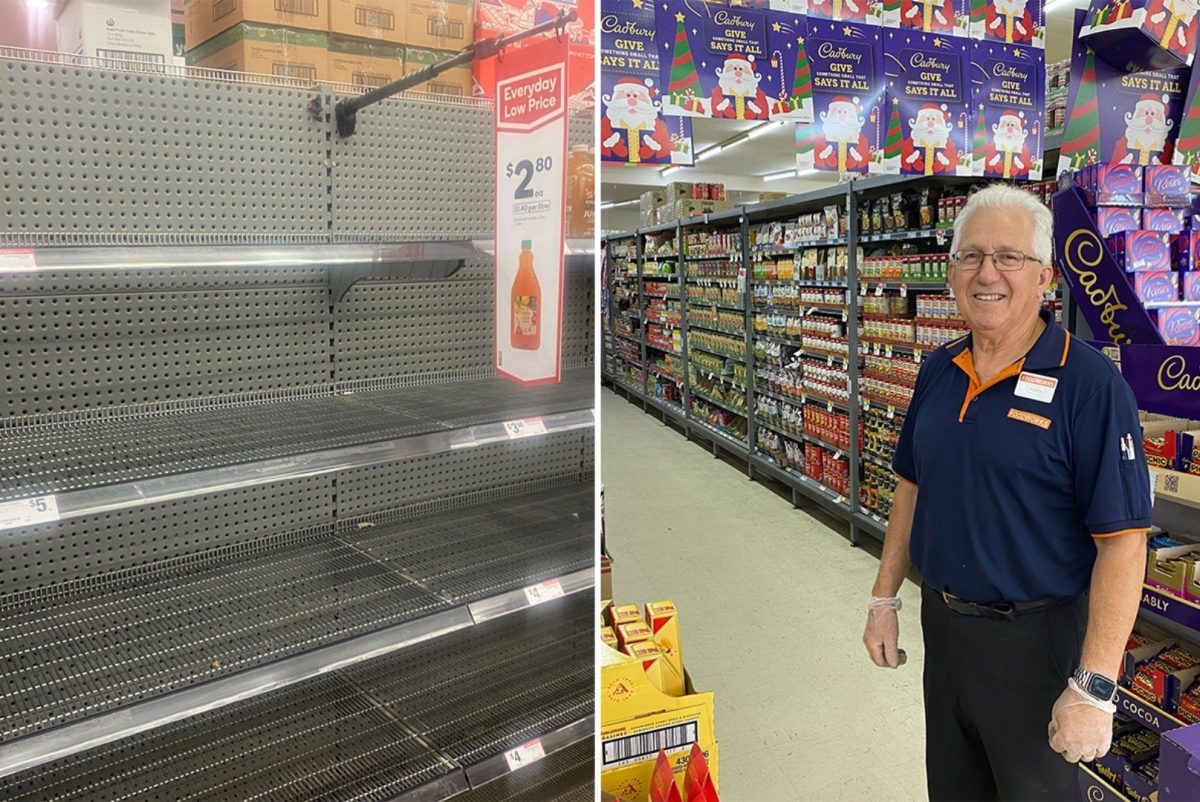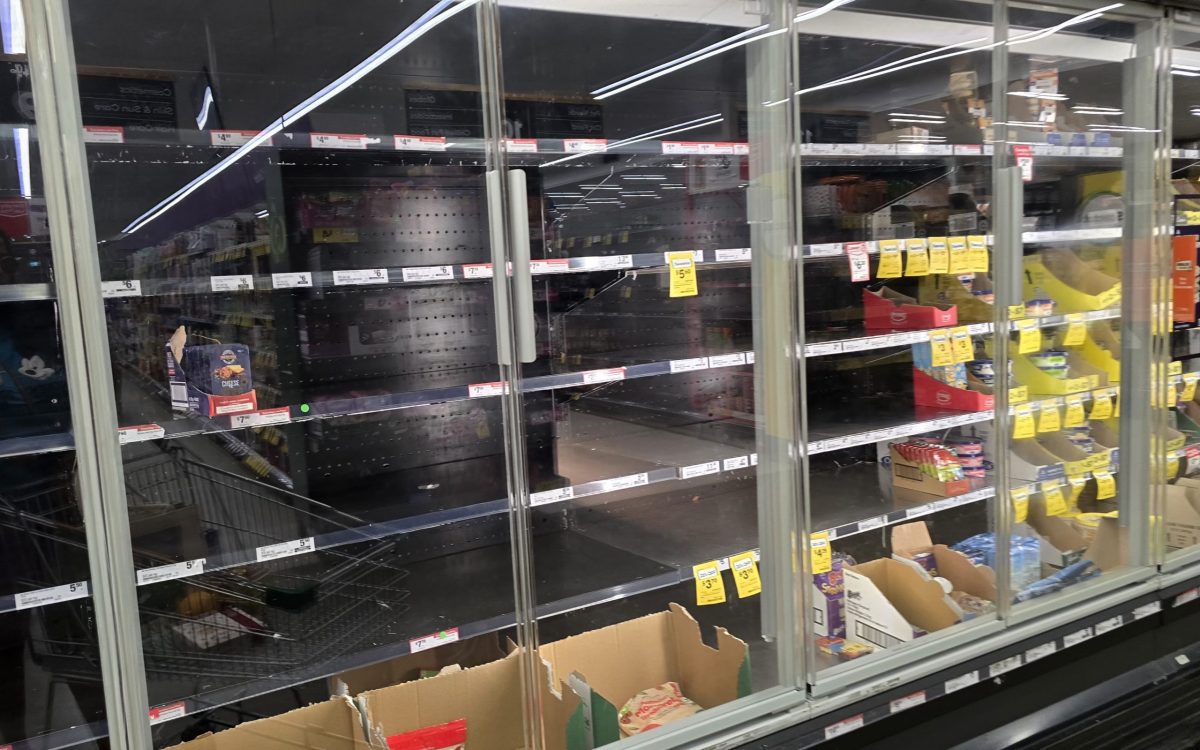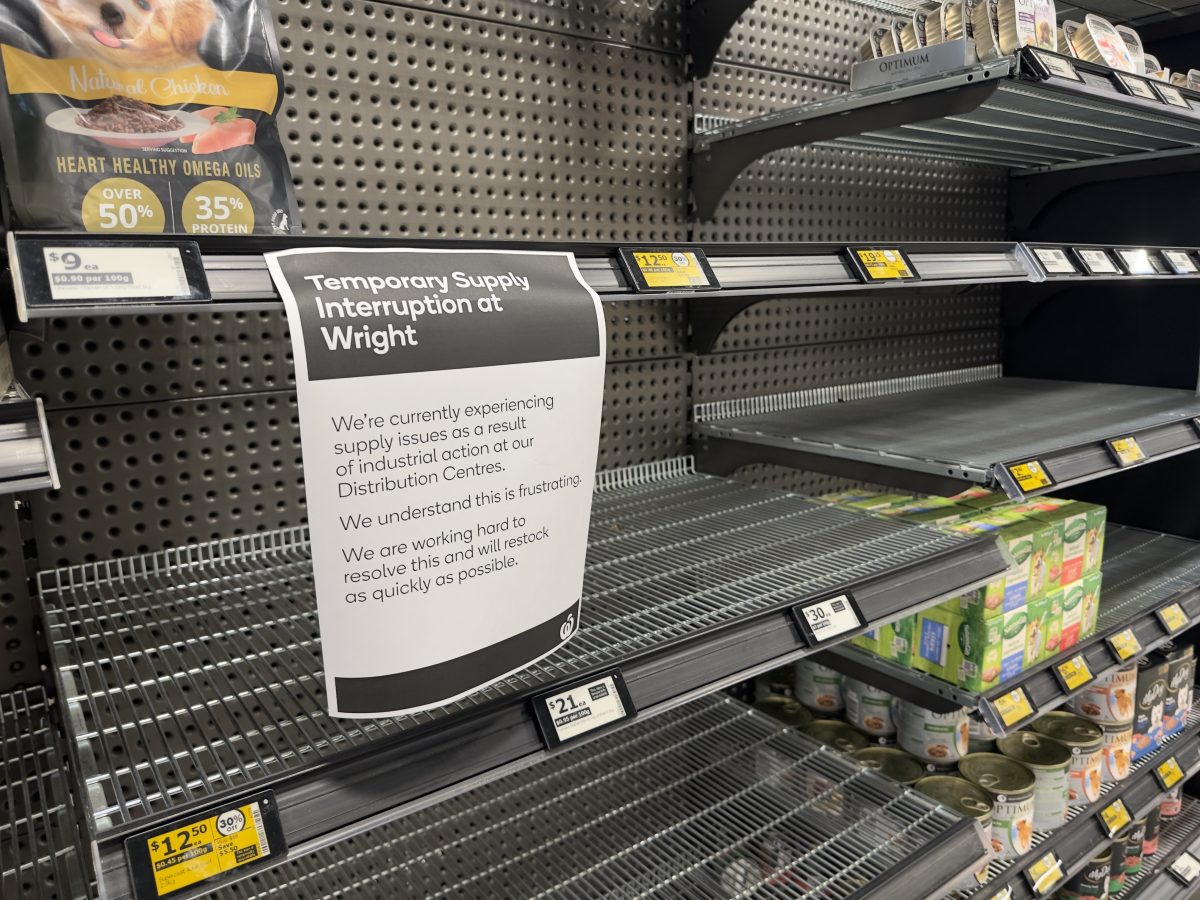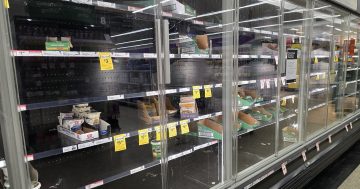
Woolworths stores across ACT and NSW have empty shelves (left), something that hasn’t impacted Foodworks (right). Photo: Oliver Jacques/Tyson Bennett.
Woolworths stores across the ACT, NSW and Victoria are likely to continue to experience grocery shortages after the supermarket giant failed to re-open a key Melbourne distribution centre on Monday (2 December) when talks broke down with 1500 striking union members.
The United Workers Union, which represents many warehouse workers, launched industrial action over pay and conditions on 21 November. This has disrupted the supply of food and drink to its retail outlets, meaning some Woolworths stores have been unable to stock basic items such as eggs, frozen foods, cold meats and soda water.
Region asked Woolworths when it expected all its retail outlets to be fully stocked again, but it declined to answer.
The supermarket was hopeful that it could re-open its Melbourne distribution centre on Monday, but a workers’ picket prevented this from happening as the strike continues into its 12th day.
The union began industrial action because it objected to a productivity ‘framework’ introduced in 2023, whereby the company monitors warehouse workers and assesses them on how quickly they can process orders.
“[Our] members … are very clear that while Woolworths’ punitive productivity ‘framework’ is still in play, safety is not being taken seriously by one of the country’s largest private sector employers in one of the most dangerous industries for workers,” union national secretary Tim Kennedy said.
“We have raised it in meetings, and we have raised it on the shop floor: treating workers like robots is unacceptable, and addressing the framework is the first priority of our members.
“The fact we have not reached agreement around this issue after 11 days of strike action suggests one of the country’s largest private sector employers cares more about profits than workers’ safety.”

The strike has substantially impacted Woolworths stores in Wagga. Photo: Shri Gayathirie Rajen.
A Woolworths spokesperson said the union was being unreasonable.
“The framework being criticised by the union has been developed with safety as an inherent component. The union has asked for no measurable performance rates. Additionally, the framework has never been introduced at two of the distribution centres at which there is currently industrial action taking place,” the spokesperson said.
“The measure of work which sits behind the framework has been developed based on the time it should take a person with reasonable skill, applying reasonable effort, working at a safe and conscientious pace, that can be maintained for the duration of a shift, to complete a task.”

Woolworths at Wright explaining the empty shelves. Photo: Michelle Kroll.
Rival supermarket Coles and independent outlets such as Foodworks have not been impacted by the strike and continue to trade with fully stocked shelves.
“We’re trading fine. We’ve still got supply flowing into the store, which is great. Nothing’s changed in that regard,” Griffith Foodworks manager Ross Catanzariti said.
“We’re in December, the volumes are creeping up, but we have geared in. We’ve ordered all stock and we have full shelves.
“If Woolworths’ supply is slowing down, eventually that could impact independent and other warehouses, and we’ll have to withdraw more supplies, but at this stage, we can handle it well.”
Woolworths’ most recent problem began when more than 1500 warehouse workers across three distribution centres in Victoria and one in NSW walked off the job on 21 November, asking the company to come to the table with an improved offer on safety, pay and equity.
In addition to abolishing the ‘framework’, the union also wants to bring all workers up to at least $38 per hour in the first year of a new workplace agreement, with percentage wage increases in following years.
“Workers all over Australia are struggling to survive in the face of more than a decade of wage stagnation compounded by ever-rising prices. The real purchasing power of wages today is lower than it was a decade ago,” Mr Kennedy said.
“Woolworths are squeezing shoppers at the register and workers on pay and conditions while making ever-increasing profits. This is contributing to growing wealth inequality in Australia.
“No one wants to see bare supermarket shelves in the lead-up to Christmas. Woolworths can fix this by coming back to the table and negotiating a fair agreement.”
Original Article published by Oliver Jacques on Riotact.









